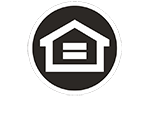Conventional vs. FHA – Which loan is best for me?
Most consumers qualify for both type of loans, so what are the reasons to choose one over the other? Let’s start with the basic needs of any loan; credit score, assets, and income. We will start with credit scores. Generally, if your credit score is below 640, a FHA loan would probably be the way to go. Rates on conventional loans vary widely with respect to your credit score, but FHA loans do not. So, basically, the higher the score the more likely you are to choose a conventional loan. Next are your assets or down payment. FHA loans require the borrower to contribute a minimum of 3.5% into your transaction. (However, this money can be a gift from many different sources.) Another perk of FHA loans are the sellers and lenders can contribute up to 6% of the purchase price to pay for your closing costs, taxes and home owner’s insurance. This allows many FHA borrowers to purchase their home with literally $0 out of their pocket! Although conventional loans offer a similar 3% down program, the max the seller and lender can contribute is 3% and many times this is not enough to offset all of the costs associated with a home purchase. Additionally, the rates are much higher. In most instances, consumers choose the FHA option. However, conventional loans do offer a very appealing 5% down program for higher credit borrowers. If your situation allows you to put down 10% or more, conventional loans are definitely the way to go. Finally, your income will determine your purchase price / maximum loan payment. All loans take your total monthly debts divided by your total monthly income to determine a debt-to-income ratio (DTI). Conventional loans usually require this to be at 42% or less. FHA will usually allow the borrower’s DTI to go to 50%, thus giving them more purchasing power. We earlier spoke about rates so to really grasp the difference between these two types of loans, let’s take a look a few different scenarios. Our loan premise will be: $180,000 purchase, 620 credit score, and DTI of 40%.
Obviously, the FHA loan is a MUCH better situation. Let’s change our credit score to 680.
Getting closer, but again the FHA loan is still a better choice. Now let’s look at a 720 score.
In this scenario, the conventional 5% down program “wins”. Remember, the FHA loan only required 3.5% down so the borrower would have a slightly higher monthly payment but would have less out of pocket expense.
So, which loan is best for you? Clearly, it depends on your personal information and whether your goal is to have a lower monthly payment or less initial out of pocket expense. For questions about FHA, conventional or any other mortgage programs, contact Rotella Mortgage - 402-339-4426.

Rotella Mortgage is an equal opportunity housing lender